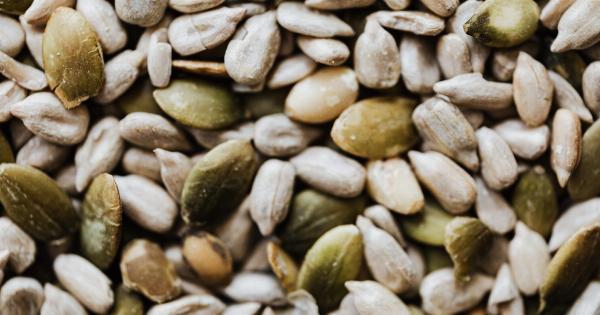Adolescent alcohol consumption has been a topic of concern due to its potential health implications. Previous studies have focused on the harmful effects of alcohol on various organs, including the liver and brain.
However, emerging research suggests a possible link between adolescent alcohol consumption and the development of aggressive prostate cancer in adulthood. This article aims to explore this association and provide a comprehensive understanding of the relationship between adolescent alcohol consumption and the likelihood of aggressive prostate cancer.
The Importance of Prostate Cancer
Prostate cancer is one of the most common cancers among men, with a significant impact on morbidity and mortality worldwide.
It primarily affects older men, but recent studies have shown an alarming increase in the incidence rate among younger individuals. While various factors contribute to the development of prostate cancer, such as age, genetics, and race, recent evidence suggests that lifestyle choices, including alcohol consumption during adolescence, may play a crucial role.
Adolescent Alcohol Consumption
Adolescence is a critical period of brain development characterized by increased risk-taking behaviors. It is also a time when individuals are likely to experiment with alcohol due to social influences and peer pressure.
Excessive alcohol consumption during this developmental period can have long-term consequences, not only on brain health but also on other organs, including the prostate gland. The prostate gland plays a vital role in male reproductive health, and any disruption in its normal functioning can lead to cancer.
The Link Between Adolescent Alcohol Consumption and Prostate Cancer
Research has shown that early-life alcohol consumption can influence the risk of developing prostate cancer later in life.
A study published in the British Journal of Cancer found that men who reported consuming alcohol during adolescence had a significantly higher risk of developing aggressive prostate cancer compared to those who abstained. This suggests that alcohol consumption during this vulnerable period may have a lasting impact on prostate health.
Potential Mechanisms
The exact mechanisms underlying the association between adolescent alcohol consumption and aggressive prostate cancer are not fully understood. However, several hypotheses have been proposed.
One possible explanation is that alcohol consumption during adolescence may disrupt hormonal balance, specifically affecting the levels of testosterone and estrogen, which have been linked to prostate cancer development. Additionally, alcohol itself contains carcinogenic compounds that could directly damage DNA and promote the development of cancer cells.
Other Factors to Consider
While adolescent alcohol consumption may play a role in the likelihood of aggressive prostate cancer, it is important to note that it should not be viewed in isolation.
Prostate cancer development is a complex process influenced by various genetic, environmental, and lifestyle factors. Therefore, it is essential to consider other contributing factors such as family history, diet, physical activity, and overall alcohol consumption patterns throughout adulthood.
Prevention and Awareness
The findings of this research highlight the need for targeted prevention strategies and increased awareness regarding the potential long-term consequences of adolescent alcohol consumption.
Educating adolescents about the risks associated with alcohol and promoting healthy lifestyle choices can help mitigate the impact on prostate health. Additionally, regular prostate cancer screenings and early detection can significantly improve treatment outcomes and reduce mortality rates.
Conclusion
Emerging evidence suggests a potential link between adolescent alcohol consumption and the likelihood of aggressive prostate cancer in adulthood.
However, further research is needed to establish a definitive causal relationship and identify underlying mechanisms. In the meantime, it is crucial to prioritize prevention efforts and raise awareness about the potential health risks associated with excessive alcohol consumption during adolescence.































